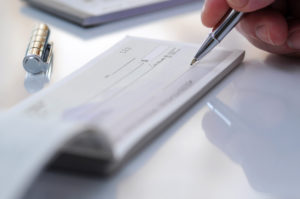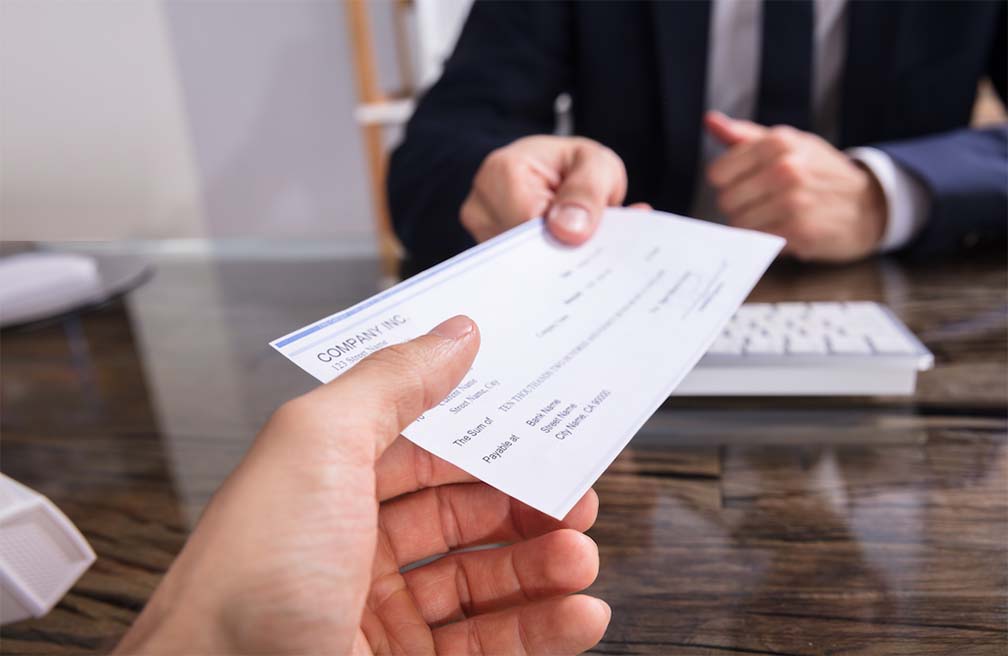Check processing is a critical part of any business and it’s important to understand how it works so that you can take advantage of all of its benefits.
When you think of payments, what’s the first thing that comes to mind? For us, it’s the check. Paying bills by writing checks is a way to move money around and pay for goods and services. But what does the check processor do?
This guide will walk you through everything you need to know about check processing and will give you tips on how to get started on your own system.
What is check processing?
Check processing is the process of clearing checks.
Checking accounts are used to make payments, transfer money between accounts, or buy goods and services. Check processing happens when a business or individual deposits a check into their account at a bank. The bank will take information from the check (such as its amount and who wrote it) and use that information to verify that it has been written correctly.
Once verified, the bank will send an electronic copy of the check over to other banks or credit unions in order to make sure that there aren’t any problems with the funds being deposited into an account. Checks can be written by customers or businesses that have an account at a bank or credit union, and the Federal Reserve will process them. The Federal Reserve then sends your check to your bank through its automated clearing house (ACH) network.
Once all those steps have been completed successfully, the money will be credited to your account. It’s important to note that the ACH network processes checks in batches; this means it can take several days before funds are available in an account after writing a check.
Check processing: how it works
Check processing is one of the most important functions of a bank. It involves taking checks from customers and paying them out to other individuals or companies, which can be either through cash or electronic payments. Check processing is also known as check clearing, because it’s when the checks are cleared from one bank to another.
When you write a check, the first thing that happens is that your bank processes it through its automated clearing house (ACH) network. This process sends information about the check electronically to other banks so that they can verify your account balance and availability of funds before processing it.
The check consists of several components including the front side where all of your identifying information appears (name, address and account number), and the back side which contains all the information about the person or business who wrote and signed it. The information on both sides are critical for processing and clearing checks successfully. Without this information there would be no way for businesses to verify whether they’ve received payment from their customers.
Once this has been done, the payment is sent to the recipient’s bank for further processing. The recipient’s bank will then send an itemized list of transactions back through the ACH network so that all institutions involved in processing payments are aware of what took place.
How long does check processing take?
There are two parts to the check processing process: clearing and settlement. Clearing happens when a check is deposited at a bank. It takes two to five business days for checks to clear. Once the checks have cleared, banks send them to the Federal Reserve Bank for settlement. It takes one to three business days for settlement to happen.
The total time it takes for a check to go from being written by the customer to being deposited in their account is about six days on average. Still, this number can be shorter or longer depending on where the customer’s bank is located and how busy their local Federal Reserve Bank is.
Rules and regulations on check processing
As a business owner, you may wonder why checks are returned to your account. It’s important to know the rules and regulations that govern check processing so that you can avoid any issues with your bank or financial institution.
Check processing is handled by banks in accordance with federal law, which requires them to verify certain information before they can deposit a check into an account holder’s account. If there’s an error of some sort on the part of either party involved in writing or receiving a check (or both), then it could cause problems when attempting to deposit funds into your account–and vice versa for someone else trying to use one of your checks at their own bank.
The check payment process is governed by a number of rules and regulations, which vary depending on the type of check being used. The type of check determines who can write it, how many copies must be made, where they can be written and cashed, as well as when they should be presented for payment.
We hope this article has helped you find the information needed for your business. If you’re looking to hire a banking professional, then BankersHub can help! We offer courses and certifications in real-time payments, ACH processing, and more. With over 10 years of experience, our instructors are focused on creating engaging lessons that benefit your business.







